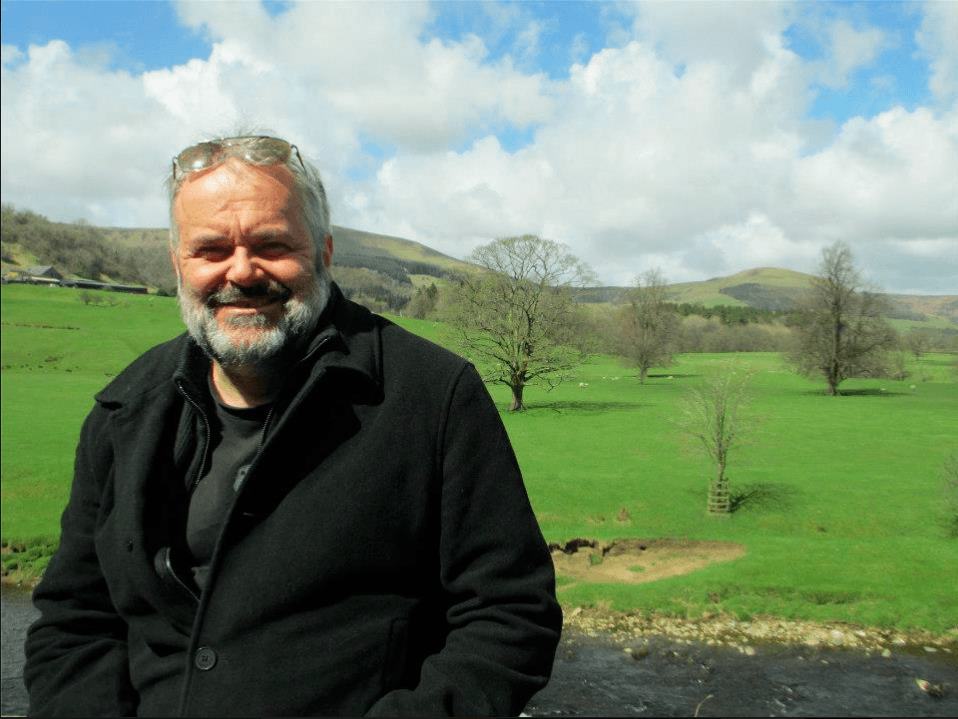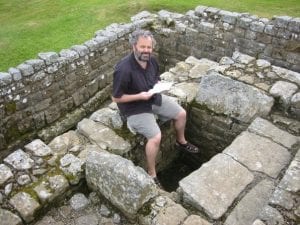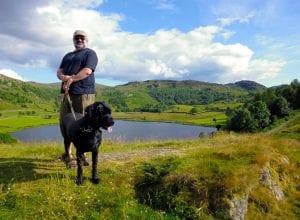
A Year in Melbourne
Professor Tim Parkin’s reflections on his first year as Tatoulis Chair in Classics
The reason the Greeks and Romans remain fascinating and significant to us in the modern world is because their influence is omnipresent and also because in studying them we constantly learn more about ourselves.
In January 2018, Professor Tim Parkin arrived in Melbourne to take up a new position – the James and Elizabeth Tatoulis Chair in Classics. Tim originally hails from New Zealand, and he has held positions across the globe, including twelve years as Professor of Ancient History at the University of Manchester (UK). He has also taught at the Universities of Queensland and Canterbury (Christchurch, NZ) and the Victoria University of Wellington (his alma mater). Tim was awarded a D. Phil at Oxford as a Rhodes Scholar, and also spent fourteen months in Germany as an Alexander von Humboldt research fellow. Tim nominates being voted the 2002 University Lecturer of the Year by the Canterbury Students’ Association as his proudest moment.
Tim’s research focuses on Roman social, cultural, legal and demographic history, and he teaches Greek and Roman history, along with classical languages. Among his publications are Demography and Roman Society (1992), Old Age in the Roman World: A Social and Cultural History (2003), Roman Social History: A Sourcebook (2007), and The Oxford Handbook of Childhood and Education in the Classical World (2014). He is currently working on ancient sexual health; in particular, sexually transmitted diseases.
Larissa Tittl recently interviewed Tim about his first year in Melbourne.
What prompted you to apply for the position of Tatoulis Chair in Classics?
Roz (Dr Roslynne Bell, my wife) and I moved to Manchester in 2006. In 2016, as the University of Manchester sought to strengthen its ties with the University of Melbourne, I was invited to visit Melbourne to give some talks and to meet people in order to see how classics and archaeology in both universities, though on opposite sides of the world, might work together more closely. It made a lot of sense, since the two universities are similar in a number of ways, but I was a little reluctant because I had only been to Melbourne once in my life, at the age of about nine (it was the middle of summer and one of my brothers was getting married), and I had, for whatever reason, come away thinking Melbourne was not nearly as nice as Sydney. Nevertheless, the opportunity to come back to Australia after more than a decade was one I felt I had to seize, and Roz strongly agreed. To cut a very long story short, those two weeks we had in Melbourne in November 2016 – the people we met, the welcome we received, the city and university we discovered – made it very clear to us that we needed to return to this part of the world at the earliest opportunity. The gods were on our side and so it eventuated that in January 2018 we arrived in Melbourne to stay. It wasn’t just that we were attracted by the city, the country, the hemisphere. The people and the facilities at the University of Melbourne, not just in classics and archaeology but also in our School and our Faculty, are world class, and we feel very fortunate, as well as very much at home, to be here.
What has been the highlight of your first year in this role? Have there been more than one?
One of the real highlights for me has been the people we have met and the friends we have made. I could not have hoped for a better year. It has been a busy year and as a result it has gone very quickly, but I think I have achieved quite a lot and I have also been delighted to realise what a good move it has been. In fact, I probably should have done it much sooner! I have always said (and for a New Zealander this is not easy) that Australian students are the most enjoyable to teach (I spent two years as Professor of Classics and Ancient History at the University of Queensland, 2004–2006); I’m not saying they’re the smartest students I’ve ever taught (to be honest, most of the students I’ve worked with in New Zealand, Australia, the UK and Germany have all been pretty clever), but I love the fact that Australian students are so engaged and enthusiastic; they don’t just sit there passively listening – they question, they challenge and they argue. So I have really enjoyed teaching as well as researching and working with people in the university and in the local communities. There has also been the opportunity to visit other Australian universities, both to give talks and to review their activities, and I even managed to squeeze in a conference in Rome for a few days. Roz, Nero and I are also very fortunate to have a vibrant set of neighbours, which means that any spare time we have is very well spent. The Yarra Valley has become a firm favourite for the occasional day off.
You have given many public lectures this year. How important is this public outreach role for classics and ancient world studies?
This is the fourth professorship I have held but it is the first one that is a named Chair; that is, it has been endowed by philanthropy. I am tremendously grateful for the generosity of the benefactors, Elizabeth and James Tatoulis, as well as others, and I see it as essential to my role – as well as to the discipline’s secure and developing future at the University of Melbourne – that we engage with our local community near and far. So I have made a very conscious effort this year to meet with as many people as possible and to speak at every possible venue that is prepared to host me. In humanities we cannot afford to rest on our laurels, we need to show how relevant and how essential our disciplines are. It is not just a case of looking for further funding to fulfil our ambitions (and we in Classics & Archaeology at Melbourne have very clear ambitions, as we shall make clearer in the New Year), but also realising that the humanities are key to ensuring that Australia continues to develop and flourish as a prominent member of the global community. So I have given lectures and talks in a wide range of venues, from local community halls to the hallowed chambers of many of Melbourne’s clubs. I have much enjoyed meeting so many people. Those who know me well know that I prefer t-shirts to a collar and tie, but when duty calls one must dress for the occasion!
Ancient history and classics are somewhat absent from the secondary school curriculum in Australia. How can ancient world scholars tap into the apparent thirst for this discipline in popular culture, and translate this into more people wishing to study the field in tertiary education?
In fact, ancient history is becoming more and more popular in Victorian schools both at primary and VCE level. (Note: the interviewer thanks Tim for disabusing her of this notion!) And Latin is by no means confined to so-called elitist schools. So I see our job as being one of fostering the study of the ancient world in the schools. I have enjoyed meeting many teachers already, as well as their students, and I look forward to taking on an even more proactive role, for example in chairing the Classical Association of Victoria from 2019, and – with my colleagues and school teachers – taking a leading role locally and nationally in steering our disciplines in terms of school curricula. We need to get school students in to the university so they learn that it is a welcoming environment and can be made aware of the wealth of opportunities available to them at the University of Melbourne, whether these be in Classics and Archaeology or Engineering or whatever. But we are not here just to cater to students present and future, we also have a responsibility to engage with our local communities and to continue to work with our alumni in order to ensure that the relevance of our disciplines remains both visible and vibrant.
Your work focuses on some largely unexplored aspects of the lives of “ordinary” Romans. Do you see this research as addressing the claim that classics and ancient history are elitist disciplines, populated by elite scholars (apart from those born in NZ, of course) and subjects (rulers and ruling classes, deities)?
What I’ve always loved about the study of ancient societies is that there is something to appeal to every taste and every interest. In studying the ancient world here in Australia, we move far away in terms of time and space. There is much that is familiar but also so much that is unexpected and mysterious. The days when the study of Greece and Rome was an elitist profession are long gone. The reason the Greeks and Romans remain fascinating and significant to us in the modern world is because their influence is omnipresent and also because in studying them we constantly learn more about ourselves. My interest in the sub-elite in the Roman world derives from the conviction that we cannot really understand the past unless we attempt to engage with more than just the 1%. And I always take heart from the fact that students seem to share that passion. In 2019 I look forward to introducing an undergraduate subject on Roman social history and my plan is, in 2020, also to teach Roman law to both classicists and lawyers.
What is your current research focus?
To be honest, 2018 hasn’t left me much time to spend in the library or my study, but I am pursuing several new areas of research, especially the question of sexual health in antiquity (did the Romans suffer from sexually transmitted diseases?), as well as delving further into areas I have investigated in the past. In particular, I am part of a new international project looking at the health and welfare of older people in Britain from antiquity to the present, and I am also editing a six-volume work on the world history of old age. I am particularly excited to be about to work with a number of new PhD students on a whole range of topics, including gender in Latin poetry, geopolitics in the Roman world, and access to legal remedies by the lower classes in ancient Rome.

